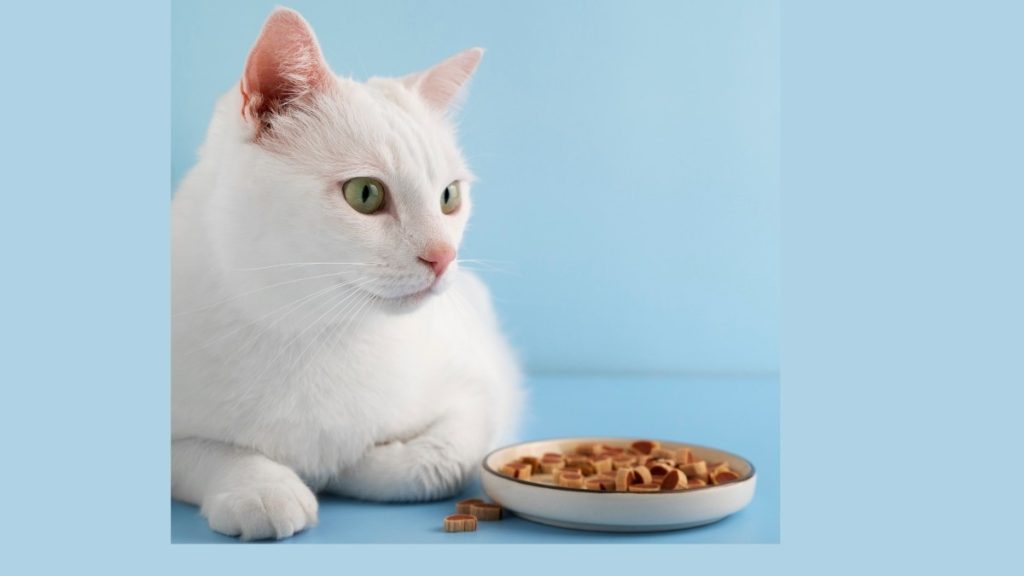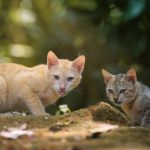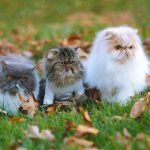Persian cats are one of the most beloved and elegant cat breeds in the world. With their luxurious fur, expressive eyes, and calm personalities, they truly deserve the best care. One of the most crucial aspects of caring for a Persian cat is feeding them the right food.
Choosing the best food for Persian cats can be overwhelming because of the wide variety of options available. Should you go for dry food or wet food? Which ingredients are essential for their coat and overall health? This guide will answer all your questions and help you select the perfect diet for your Persian cat.
Why Diet is Important for Persian Cats
Persian cats have unique dietary needs due to their physical structure and long fur. Feeding them the wrong food can lead to:
- Hairballs: Caused by excessive fur ingestion during grooming.
- Obesity: Due to low activity levels.
- Dental Issues: Common in brachycephalic breeds with flat faces.
- Skin and Coat Problems: A poor diet can dull their beautiful coat.
A balanced diet ensures:
- Shiny, healthy fur
- Strong immune system
- Good digestive health
- Longer life expectancy
Nutritional Requirements of Persian Cats
To keep your Persian cat healthy and happy, their diet should include:
- High-Quality Protein: For muscle maintenance (chicken, fish, turkey)
- Omega-3 and Omega-6 Fatty Acids: For a shiny, soft coat
- Fiber: To reduce hairball formation
- Vitamins & Minerals: For immunity and bone health
- Taurine: Essential for heart and eye health
Best Types of Food for Persian Cats
When choosing food for Persian cats, there are two main types:
1. Dry Cat Food (Kibble)
- Helps maintain dental health by reducing plaque buildup
- Easy to store and measure
- Can be formulated for Persian cats with special kibble shape for flat faces
Things to Check:
- High protein (at least 30%)
- Low fillers like corn or wheat
- Enriched with Omega-3, Omega-6, and taurine
2. Wet Cat Food (Canned Food)
- Higher moisture content helps with hydration
- Easier to chew for Persian cats with dental issues
- Generally more palatable than dry food
Things to Check:
- Real meat as the first ingredient
- Grain-free or low-grain options
- No artificial preservatives or colors
3. Homemade Food for Persian Cats
Many owners prefer homemade diets, but these should be carefully balanced.
Safe Ingredients for Homemade Cat Food:
- Boiled chicken or turkey (no bones, no spices)
- Steamed fish like salmon (rich in Omega-3)
- Small amounts of cooked eggs
- Vegetables like pumpkin (for fiber)
Avoid:
- Onions, garlic, chocolate, raw meat, and bones
Top Recommended Foods for Persian Cats in India
Here are some highly recommended cat food brands for Persians available in India:
1. Royal Canin Persian Adult Dry Cat Food
- Specially formulated for Persian cats
- Unique almond-shaped kibble for flat faces
- Enriched with Omega-3 and Omega-6 for skin and coat
2. Whiskas Wet Cat Food for Persian Cats
- Balanced nutrition with real meat
- Available in flavors like tuna and chicken
- High moisture for hydration
3. Me-O Persian Cat Food
- Affordable option for Persian owners
- Contains essential vitamins and minerals
- Supports hairball control
4. Farmina N&D Grain-Free Cat Food
- Premium grain-free formula
- High protein from fresh meat
- Helps maintain ideal weight and coat health
Feeding Schedule for Persian Cats
Persian cats thrive on routine feeding schedules. Here’s an ideal breakdown:
Kitten (2-12 months):
- 4 small meals per day
- High-calorie kitten food for growth
Adult (1-7 years):
- 2 meals per day
- Balanced diet with moderate fat and protein
Senior (7+ years):
- 2 meals per day
- Low-fat, easy-to-digest food to prevent obesity
Common Feeding Mistakes to Avoid
- Overfeeding: Persians gain weight easily due to low activity.
- Feeding Only Dry Food: Can lead to dehydration. Mix with wet food.
- Giving Human Food: Many human foods are toxic for cats.
- Ignoring Hairball Control: Choose food with added fiber or give hairball paste.
Special Diet Tips for Healthy Coat and Hairball Control
Persian cats are known for their long, luxurious coats, which require extra attention.
For Coat Health:
- Include Omega-rich food (salmon oil, fish-based diets)
- Supplements like biotin (after vet consultation)
For Hairball Control:
- High-fiber food to help hair pass through the digestive tract
- Groom your cat daily to reduce shedding
- Use specialized hairball-control cat treats or gels
Homemade Diet vs Commercial Food: Which is Better?
Both options have pros and cons:
Homemade Diet:
Fresh and preservative-free
Can be customized
Needs expert guidance for nutritional balance
Commercial Food:
Convenient and balanced
Specially formulated for Persian cats
Premium brands can be costly
Best Solution: A mix of both under vet supervision.
Hydration: Why Water Matters for Persian Cats
Persian cats are prone to kidney and urinary problems, so hydration is crucial.
Tips to Keep Your Cat Hydrated:
- Provide clean water in a shallow bowl
- Add wet food to their diet
- Use a cat water fountain to encourage drinking
Fun Facts About Persian Cats and Food Habits
- Persians are picky eaters; they love variety in flavors.
- They prefer soft textures due to their flat faces.
- Many Persians enjoy licking wet food gravy before eating solids.
Final Thoughts
Feeding your Persian cat the right food is essential for their health, beauty, and happiness. Whether you choose premium dry food, wet food, or a combination of homemade meals, make sure their diet includes the right nutrients for coat health, digestion, and overall well-being.
By avoiding common mistakes and following expert tips, your Persian cat will enjoy a long, healthy, and happy life with you.
FAQs About Feeding Persian Cats
Q1: Can I feed milk to my Persian cat?
A: No, most cats are lactose intolerant. Milk can cause diarrhea.
Q2: How much should I feed my Persian cat daily?
A: An adult Persian cat needs 70–100 grams of dry food or an equivalent mix of wet food daily, depending on weight and activity level.
Q3: Is fish good for Persian cats?
A: Yes, cooked fish like salmon is good in moderation. Avoid raw fish.
Q4: Can Persian cats eat raw meat?
A: Raw meat can carry bacteria. Always feed cooked meat.
Q5: Should I give supplements to my Persian cat?
A: Only after consulting a veterinarian.


